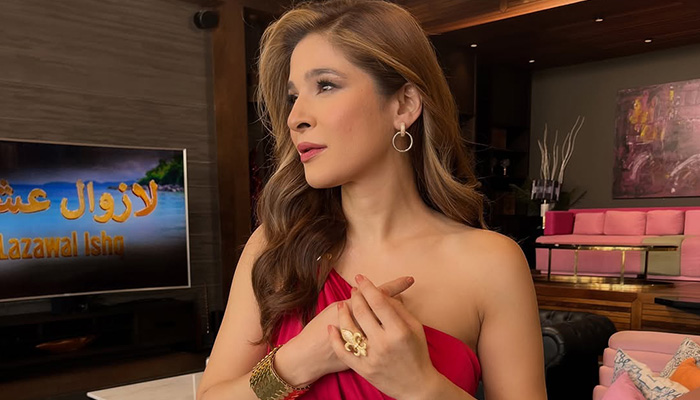Lazawal Ishq Controversy: Islamabad High Court Petition Against Un-Islamic Dating Show
The reality show “Lazawal Ishq” has ignited a firestorm of controversy in Pakistan, prompting a petition in the Islamabad High Court to ban it for promoting “obscenity” and “moral corruption.” Hosted by renowned actress Ayesha Omar, the show features four men and four women living together in a luxury villa in Istanbul, with their interactions recorded for an Urdu-language series adapted from the Turkish format Aşk Adası and inspired by the global hit Love Island. As of October 17, 2025, the show has released 15 episodes on YouTube, amassing over 40,000 subscribers and millions of cumulative views. Despite the backlash, it continues to draw viewers, dividing public opinion between those labeling it “un-Islamic” and defenders who view it as modern entertainment. This article explores the uproar, the legal battle, and the societal implications in Pakistan’s conservative landscape.
What is Lazawal Ishq?
Lazawal Ishq, meaning “Eternal Love,” premiered on YouTube on September 29, 2025, and is set to run for 100 episodes. The show brings together eight Pakistani contestants—four men and four women—with diverse backgrounds, including corporate professionals, lawyers, a dental student, and a theatre hopeful. The format involves the contestants living together in a luxurious villa, participating in challenges to test compatibility, and forming romantic connections under constant camera surveillance. The first episode garnered over 1.1 million views, and as of October 17, 2025, episode 15 has contributed to the channel’s rapid growth, surpassing 40,000 subscribers.
Hosted by Ayesha Omar, known for her roles in films like *Dhai Chaal* and *Behnaz*, the show’s makers claim it focuses on “emotional connection” and the “search for lifelong love.” However, the teaser, featuring Omar cruising along the Bosporus, triggered massive backlash even before the premiere, with social media users criticizing the bold concept and attire as a departure from Pakistani cultural norms.
The Outrage on Social Media
Social media has erupted with strong reactions against the program. Many have labeled it morally inappropriate, with calls for PEMRA to impose a ban. A social media user posted on X: “Let’s boycott and raise our voices before this shamelessness starts! Look the way these female actresses of Pakistan are spoiling our youth through western culture’s clothing! We don’t want such shows please!!” (Source).
- Critics have flooded YouTube comments with Quranic verses, condemning the show as “immoral” and a threat to Islamic values.
- Some labeled it a “cultural embarrassment” and a “cheap copy of Love Island,” arguing it promotes vulgarity over confidence (The Express Tribune).
- Others called it Pakistan’s “guilty pleasure,” with one user joking, “Even the Taliban had enough of Lazawal Ishq” (Firstpost).
Conversely, supporters argue it’s harmless entertainment. A user on X wrote: “Sadly, the people criticising here are often the same ones who enjoy reality shows from other countries. But when it’s our own reality show, made by our own people, we’re quick to criticise” (Source). Another defended creative freedom: “There’s absolutely nothing wrong or ‘immoral’ about Lazawal Ishq. It’s a YouTube program & we can trust Pakistani adult viewers to decide for themselves” (Source).
Legal Battle and Regulatory Challenges
The controversy escalated when Muhammad Faiq Shah, Chairman of the Amun Taraqqi Party, filed a petition in the Islamabad High Court on October 15, 2025, claiming the show’s content is “against societal values and contrary to national ethics” (The Current). The petition seeks a ban, urging PEMRA and PTA to monitor digital content and consult the Council of Islamic Ideology.
Justice Arbab Muhammad Tahir has issued notices to the federal government, PEMRA, PTA, and other bodies, with the next hearing scheduled for November 20, 2025 (Dunya News). However, PEMRA clarified that Lazawal Ishq, being a YouTube-exclusive show, falls outside its jurisdiction, as it only regulates licensed TV channels (Firstpost).
PEMRA responded to public complaints via its official account, stating that individuals with objections should approach the relevant social media platform. This has sparked debates about the need for new regulations to govern digital content, given its influence on millions of young viewers.
Societal Impact and Cultural Debate
Pakistan is a conservative society rooted in religious values, where family systems hold fundamental importance, and relationships are typically formed according to cultural and Islamic principles. A dating show where unmarried individuals cohabit and their relationships are televised is seen as a direct challenge to these values. Critics warn it could influence the youth to view relationships as a “game or experiment,” potentially destabilizing family structures (The Independent).
Some argue that globalization has already exposed Pakistani youth to Western shows online, suggesting a localized version like Lazawal Ishq could adapt to cultural sensitivities. However, opponents counter that mimicking foreign formats risks eroding Pakistan’s cultural and religious identity. Pakistani TV host Fiza Ali called it “a dangerous influence on young minds,” echoing concerns about its promotion of Western lifestyles (Source).
Such programs could directly impact the younger generation. They might start perceiving relationships as a game or temporary experiment, which could shake the foundations of our family system. The debate extends to whether such content fosters superficial relationships over the deep, responsible bonds valued in Pakistani society.
Ayesha Omar’s Defense
Amid the backlash, Ayesha Omar defended the show, stating in an interview with Gulf News: “Lazawal Ishq is not inspired by Love Island. It’s not even a dating show… The show’s format aligns well with our culture, principles, and values. In our society, eternal love leads to the sacred union of matrimony, and that’s what the show is going to end up in” (Source). She emphasized it as a social experiment rather than a dating program, though this has done little to quell the criticism.
Conclusion
The Lazawal Ishq controversy highlights a clash between modernity and tradition in Pakistan. While the show has drawn significant viewership and sparked creative debates, its bold format has fueled legal and societal backlash. With the Islamabad High Court now involved and no clear regulatory framework for digital content, the future of such programs remains uncertain. Pakistan must balance freedom of expression with cultural preservation, making it imperative for the government to develop a national policy to regulate online content effectively.
For the original petition document, you can view it here: View Petition PDF.


